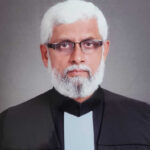
The line “Dust thou art, to dust returnest” is taken from a poem by Henry Longfellow, (“Life is real! Life is earnest! And the grave is not its goal; Dust thou art, to dust returnest, Was not spoken of the soul.”) based on a line from the Bible, Ecclesiastes 3:20. It supposedly signifies the futility of human life, telling us God created Adam from dust, and whatever we do will be in vain, as one day we will all return to dust. The futility of effort is a topic discussed by various poets such as Shelley who, like Longfellow, believed that whatever we do, nothing will remain and it will all, regardless, be futile. Futility, the question “what is the point of it all?”, are threads that run through the fabric of poetry of that genre. Then there is a contrast: we had William Ernest Henley declaring grandly in Invictus, “In the fell clutch of circumstance, I have not winced nor cried aloud. Under the bludgeonings of chance, My head is bloody, but unbowed.” That is the spirit of all awakenings, of all freedom struggles, of all effort directed at emancipation, at raising the human condition from servility to evolutionary achievement, of realisation of man’s potential, to the level of the Tagorean dawn into which he wanted his country to awaken.
They say that buildings of old periods reveal from the heights of their ceilings and their ornate architecture and embellishments the lofty thinking and ideals and the breadth of vision of people of that period. Exposed to the philosophy of idealists and great thinkers of the past, their own thinking and mental constructs display the capacity to think in a visionary style in order to build what would be lauded and revered for generations to come. This applies not just to architecture and monumental buildings but also to the abstracts that were constructed in the mind leading to phenomenal legislation that governed the conduct of people in the civilized world across nations and delved into complex legal theory illustrated by the schools of Islamic jurisprudence, Roman law and the laws that came to be passed following the Renaissance. The willingness to be open and receptive to new ideas enabled great progress to be made in science and technology covering diverse fields such as mathematics, astronomy, medicine, physics, pharmacology, and more.
Then mankind in certain territorial jurisdictions (I will not say which for obvious reasons because these are sensitive times) began to regress and we found that societies were no longer open or willing to allow even expression of thought which disagreed with whatever they wanted to hold either as true or as sacrosanct. Institutions of science naturally began to wither and die. Those who expressed views at variance with ones held by predominant masses who had the ear of the powers that be, found themselves persecuted and sometimes incarcerated.
The rest of the world meanwhile continued to progress. As in the case of science and technology, the capacity to legislate in a farsighted manner to more justly govern the people who had elected them to power was more and more manifested in emerging situations that found themselves addressed by Parliaments and Assemblies.
2021 saw today in a newspaper the report that the honourable Supreme Court had said that criminal cases against lawmakers, i.e., legislators and parliamentarians, should not be allowed to be withdrawn by state governments unless the High Court of the concerned state gave its consent.
Good enough on the face of it but when we consider that considerable input that leads to the appointment of judges to the High Court of a state is input provided by the State government it becomes clear that the element of a quid pro quo cannot be completely eliminated. Is the citizen now to conclude that the despair of “Dust thou art, to dust returnest” is the approach that should be justified since those in power can in given situations brazenly violate the law and their fellow legislators and parliamentarians will suggest to the enforcement wings of their own government under their own control that criminal cases registered on account of those actions violative of law should be withdrawn derogative of and negating the rights of the victims… and those who are charged with the duty of determining whether or not such withdrawal should or should not be consented to will be the very people who have been placed as adjudicators by the very people over whose actions they are indirectly to sit in judgement… and since the withdrawal would reflect on their culpability or otherwise, the situation would be effectively enabling a person to sit in judgement over himself through those he has himself appointed… if you don’t know what I don’t mean…?
Does futility come to mind, or do we presume that those who are charged with violating the law will ensure people in positions of authority over themselves will be those over whom they would have no means of effective control… taking it for granted that the age of people with visionary thinking, the age of miracles, is not yet over?!
Or are we to hope that the spirit that moved the framers of our Constitution drew on the best practices and the best legislative examples prevailing in the world then, still lives on, and we lean towards Henley’s grand “…Under the bludgeonings of chance, My head is bloody, but unbowed,” muster up a vergegenwärtigung of the spirit of all freedom struggles, raising the political condition from abject servility to grand evolutionary achievement, aim to realise citizen potential to the level of Tagore’s dream? Could the Supreme Court in its wisdom have said that like the body that is created to oversee matters in ombudsman style, an independent autonomous body shall be created comprised of stakeholders in ensuring the rule of law prevails and that that body shall decide whether such withdrawal should or should not be permitted… and if such attempted withdrawal is found to be mala fide or an attempt to enable an offender to escape the consequences of his or her action, the costs of the exercise of that evaluation as well as the cost of the entire trial to be conducted in that matter shall be recoverable from the offender in question and all those who recommended such withdrawal, till which time all assets of the said individuals and their immediate family members acquired after each respectively came to power shall stand charged under a first statutory charge? Assuming that the Supreme Court would have done this could it also have ensured that since the people who suffer from violation of the law by the rich and powerful are the weakest unrepresented sections of society and comprise the most marginalised of all communities, the composition of such independent autonomous bodies shall be predominantly representative of people from these adversely affected segments of society?
As Martin Luther King did, citizens have a dream. Whether people in power elected by the citizens share that dream, remains to be seen. And if they dream that dream then their pronouncements and orders will reflect that and their wisdom stand demonstrated through those pronouncements and orders. And if they don’t? Well, if they don’t then the citizen goes from dream mode to nightmare mode, the nation wallows in a spirit of disbelief in any Tagorean dream, smug in its conviction of the futility of all effort, continues to see all initiative die, remains stagnant, watches the world march on.
I wrote in 1979 (titled “India Today” published in August 15th 1979 issue of New Delhi edited by Khushwant Singh) “The citizen heard, and went his way, His grim heart full of tears: But his head was high, his hand was firm, His the wisdom of painful years. // His hand was firm, he cast his vote, And caused the gods to flee in fright. The dust of the years he kneaded to clay, And fashioned from it a source of light. // The night was driven, the land knew hope, And the dawn came fresh and gray. Understand, O people. Awake ! Awake ! The time is at hand, the time is today !”
This August 15th, let us hope there will be introspection in Parliamentary, Legislative and Judicial circles, and that from that introspection, that vergegenwärtigung, that rededication to the spirit of all freedom struggles, to raising of the political condition from abject servility to grand evolutionary achievement, is realised citizen potential and is attained Tagore’s dream: the VishwGuru.
If not, while ordinary citizens experience existences of futility from dust to dust, satanic and anti-Constitutional forces will rise from dust to become zabardust.
Jai Hind
Shafeeq R. Mahajir is a well-known lawyer based in Hyderabad

